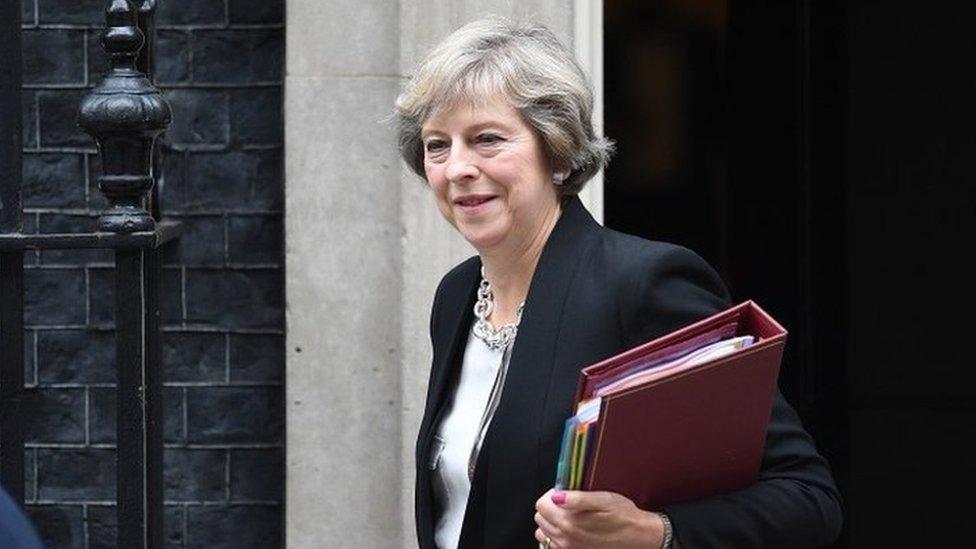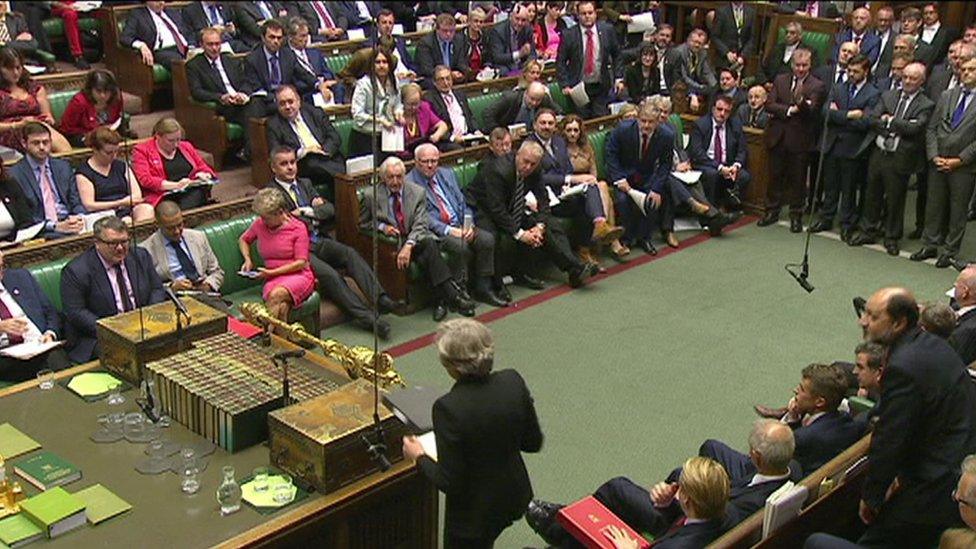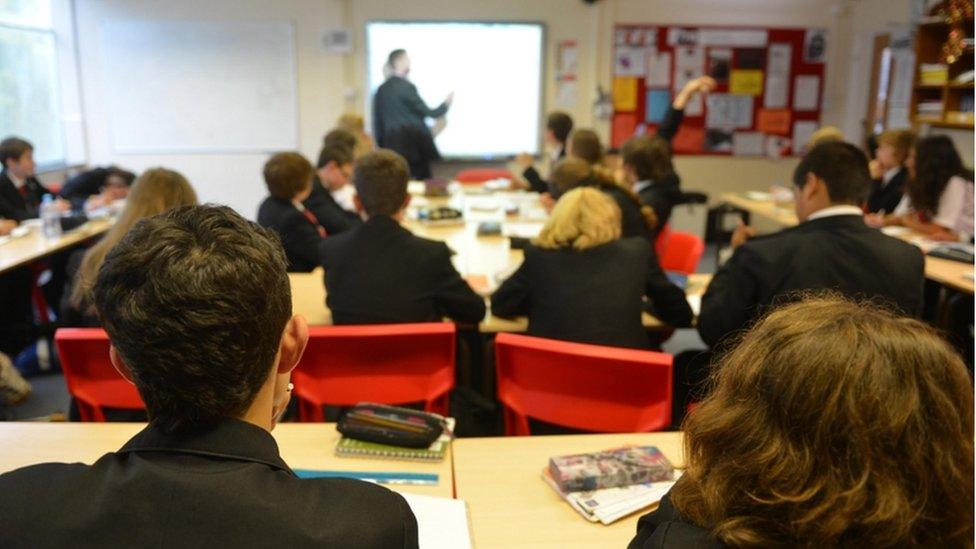Theresa May shakes things up with grammar schools plan
- Published

Theresa May has maintained cool, calm composure since she took the job in Downing Street.
Her decision to play her cards very close to her chest on Brexit, and frankly everything, has paid off so far, with the lion's share of Tory MPs supportive of her, and current polling suggesting the public is relieved to have an experienced minister in charge, the traditional safe pair of hands, in the tumultuous aftermath of the referendum vote.
But her decision to resuscitate the idea of expanding grammar schools will shake things up, and not in ways the new administration might entirely like.
Certainly, a drive to open new grammar schools will delight many of the Tory party's members and indeed, many of the party's backbenchers. But not all of them will be banging the desks in delight at the idea, even though the PM was given that traditional welcome by her MPs last night at the backbenchers' 1922 meeting.
There are two big reasons why the proposal has alarmed some Tories.
Commons majority?
First, for some former ministers opening a handful of new grammar schools would be seen as a controversial distraction from the much bigger education reforms that are already taking place. And there's a view that grammars are a political fight that the Tories fought and lost years ago when Labour changed the law to ban the opening of new ones.
Reviving them will suck political time, effort and energy away from the existing plans to open new academies and drive up standards in parts of the country where schools have been falling behind. Sources suggest the areas where schools need to improve significantly are unlikely to be places where new grammars would appeal.

Would there be Commons support for the policy?
Second, Theresa May may have the overwhelming support of MPs and be polling well in the country, but her parliamentary majority is tiny, only 12 - a number smaller than the number of people she fired from government.
With disquiet about the policy, it is far from certain that it would pass the House of Commons, and it seems almost impossible that it will get through the House of Lords. Moreover, this is one of the few policy areas where the Labour Party is united, while the Tories are divided.
Calm before storm?
Some MPs wonder if it is really smart politics this early in her tenure to pick this kind of row? There is also concern about the perception of this policy - a harking back to what for some are the "good old days", but for others are a retro nightmare.
All that said, we haven't seen the crucial details of the actual plans yet. One of Theresa May's closest and smartest advisers, Nick Timothy, worked most recently at the New Schools Network, and knows the education system inside out.

Is it feasible therefore that the government will find a way to expand selective education without having to legislate to unpick the grammars ban?
The new system of free schools, academies, faith schools, grammars, is complex, and perhaps there is a way through without a huge parliamentary fight. Number 10 will be well aware that bringing back grammars and selection will inevitably cause a fight.
But after Theresa May's smooth first months in power, an almighty row over grammars is on the way. After the calm, there is, eventually, always a storm.